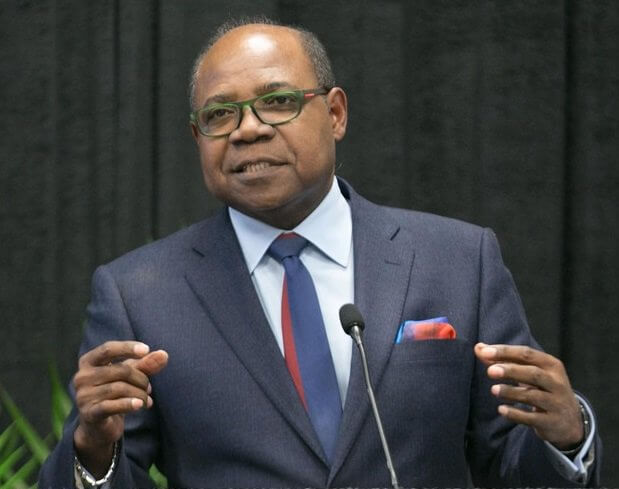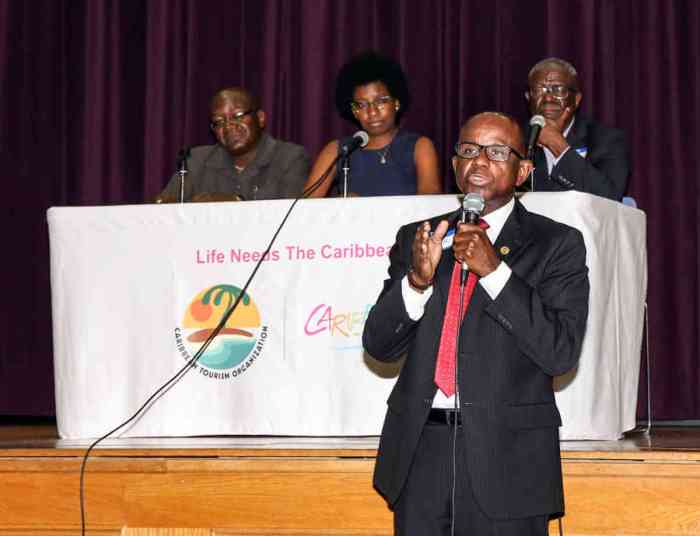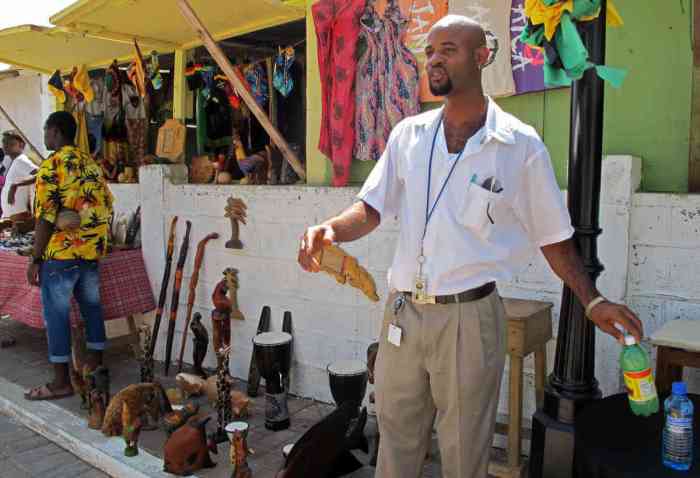With global forecasts positioning travel and tourism as a leading driver of Africa’s economic growth over the next decade, Jamaica’s Minster of Tourism Edmund Bartlett has highlighted the strategic importance of the Caribbean in engaging members of the African Diaspora domiciled in the Americas to forge stronger partnerships between both regions and benefit from this promising trajectory.
Speaking on Thursday at the Africa Diaspora Travel and Tourism Summit, where he delivered the keynote address virtually, the tourism minister said, “In 2018, tourist arrivals among African destinations grew by 5.6 percent, which was the second-fastest growth rate among all regions and stronger than global average growth of 3.9 percent.
According to forecasts from World Travel & Tourism Council (WTTC), tourism’s gross domestic product (GDP) will grow at an average rate of 6.8 percent annually between 2022-2032, more than twice the 3.3 percent growth rate of the region’s overall economy,” he added.
In this regard, Bartlett said that the Caribbean, comprising predominantly people of African ancestry and being among the most tourism-dependent regions in the world, had the unique opportunity to connect with the African Diaspora and build meaningful tourism linkages geared towards promoting development across borders.
Noting the continent’s youthful population and the positive shifts in the political landscapes of African nations, Bartlett said, “Africa has great potential to become a major force in global tourism.
“African destinations also have a competitive advantage amid the growing global interest in experiential tourism, especially culture, heritage and adventure,” he added.
“It has become clear that many African countries offer tremendous promise to become or remain vibrant hosts for tourists, investors and entrepreneurs, which can drive employment for low-skilled workers and economic inclusion for women and youth,” he continued.
Notwithstanding this, the tourism minister stressed that the barriers to effective engagement of the diaspora needed to be tackled.
At the same time, he advocated for greater efforts to be made by the various stakeholders to ensure increased participation of African Diasporas in the economic transformation of the continent and challenged leaders to utilize the resources of the Diaspora through the promotion of trade, investments, research, innovation, and knowledge and technology transfers.
“Greater emphasis also needs to be placed on strengthening policies and programs to engage the African Diaspora at the regional level such as the African Union level,” Bartlett said.
While credit must be given to the efforts of some African countries that have been pursuing policies to develop links with Africans abroad, either to encourage them to return or to use their skills, knowledge or financial capital to foster African development, “there is a lot more room for improvement,” he said.

























